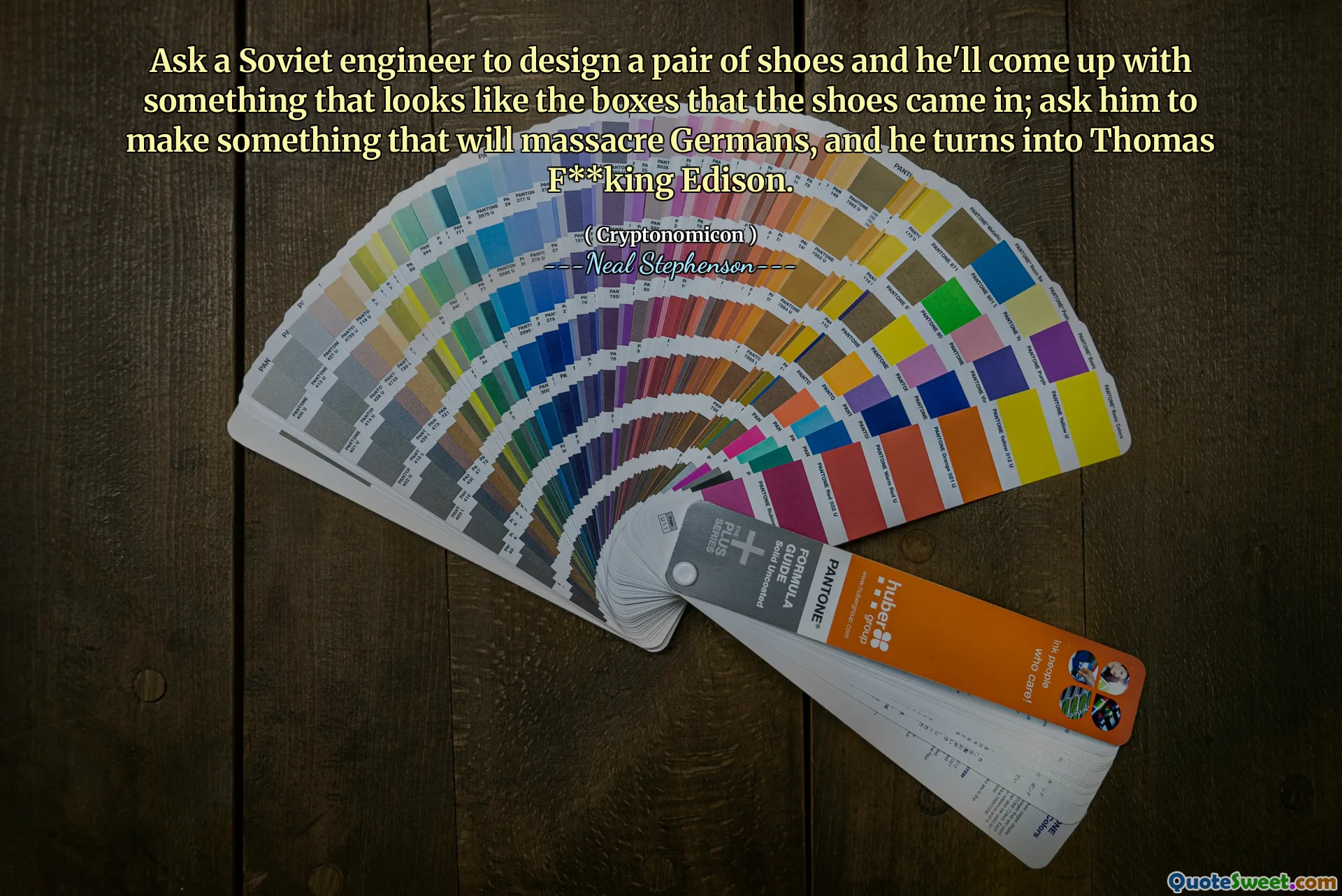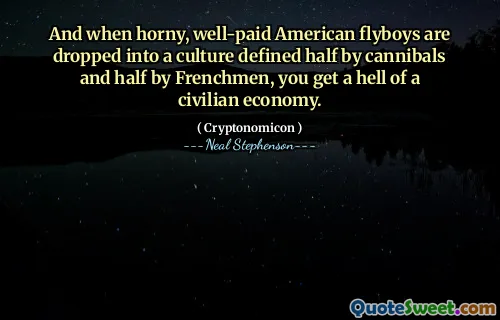
Ask a Soviet engineer to design a pair of shoes and he'll come up with something that looks like the boxes that the shoes came in; ask him to make something that will massacre Germans, and he turns into Thomas F**king Edison.
This quote highlights the profound difference between expertise in different domains and how context shapes innovation. It humorously suggests that specialists tend to approach problems with a narrow focus rooted in their training and background. For example, a Soviet engineer might lack the inventive flexibility needed for design innovation outside their technical sphere, resulting in practical but uninspired outcomes—like shoes resembling their packaging. Conversely, when tasked with a more noble or urgent purpose, such as creating weaponry or strategic devices during wartime, the engineer becomes almost instinctively inventive, akin to Thomas Edison, known for his prolific inventions and relentless creativity. The comparison underscores how motivation, context, and perceived importance can unlock or stifle creative potential. It also reflects on the tendency of certain fields or cultures to prioritize functionality based on necessity, leading to either mundane or extraordinary results depending on the task's urgency. The quote opens a dialogue on how innovation often requires a combination of technical skill, creative thinking, and the right incentive. It implies that in times of necessity or high stakes, even those unrecognized for their creativity can deliver extraordinary solutions. Similarly, it prompts us to consider how we approach problem-solving in our own lives, especially in environments that either foster or hinder creativity. The humorous tone coupled with sharp insight invites reflection on the roles of motivation, expertise, and context in driving human ingenuity and whether true innovation depends more on the individual or the situation that surrounds them.







